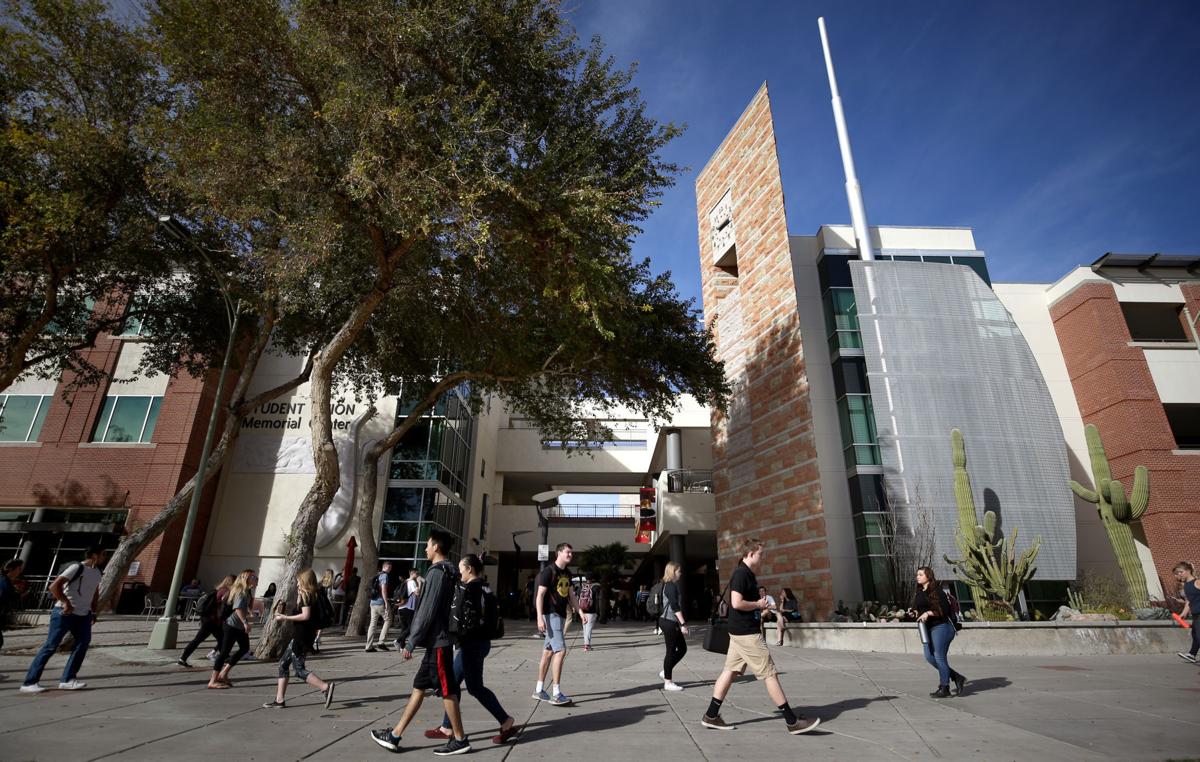Records provided to the Star by the Arizona Board of Regents about legal claims filed against the UA shielded the names of student athletes accused of violent behavior, but not the alleged victims.
A regents spokeswoman said the redaction was in accordance with a privacy law regarding educational records, but public records experts disagree that notices of claim fall under those privacy laws.
As part of a routine public records request, the Star received copies from the regents staff of two notices of claim, which can be precursors to lawsuits unless settled. Both notices involved student athletes at the UA being accused of violent acts by fellow students.
One involved Orlando Bradford, who at the time was a running back on the UA football team. But his association with the student’s claim was only determined because of previous news reports, as the regents had redacted his name from the claim. Bradford was charged with 10 felonies and dismissed from the team.
The notice was filed by a woman, Bradford’s ex-girlfriend, who reported him to the police after several violent incidents, during which she alleges that he strangled and kicked her, among other things. It was addressed to the UA, which she accuses of having been negligent.
A second notice of claim was filed by a former UA swimmer, who accused university employees of being unfair and retaliated against him after he was allegedly assaulted by a teammate, and tried to seek disciplinary actions.
The identity of the accused athlete is unclear, as his name was redacted. However, the accuser’s name was not. The Star is not naming either accuser because it generally does not name alleged victims of violence.
Sarah Harper, a spokeswoman for the Board of Regents, said the athletes name were redacted in accordance with the Family Education Rights and Privacy Act, known as FERPA. The law protects the privacy of students’ education records.
“The redactions are of the names of other student individuals identified, in accordance with FERPA, as well as other personally identifying information,” Harper said in an email.
Even former students’ records are protected, she said. She did not respond to follow-up questions asking if notices of claim were considered education records or why the accused students’ names would be protected while the accusers’ were not.
“I think that’s a stretch to claim they are educational records,” said David Cuillier, a Freedom of Information Act expert and director of the UA’s School of Journalism.
“They’re clearly wrong that a notice of claim is ever a FERPA student record,” said Frank LoMonte, executive director of the Student Press Law Center, a legal assistance agency that helps student journalists.
FERPA is actually very narrow, LoMonte said. It’s meant to protect records like grades, transcripts and test scores.
The law’s guideline defines education records as “records that are directly related to a student and that are maintained by an educational agency or institution or a party acting for on behalf of the agency or institution.”
Nothing about a notice of claim is educational in nature, he said.
It makes sense to not redact the alleged victims’ names, LoMonte said. They filed the notices of claim, which are public records. But colleges have a tendency to use FERPA “opportunistically,” he added.





